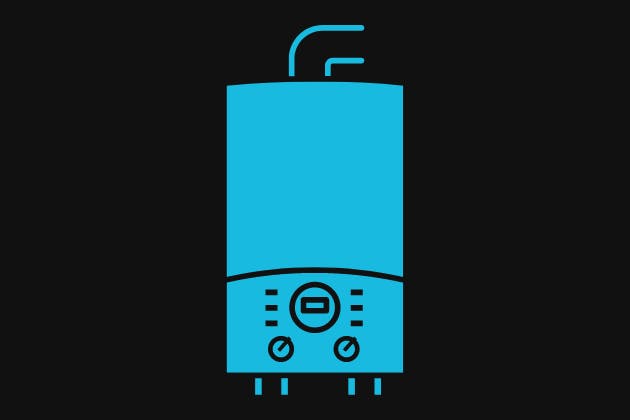Your boiler is a powerful device that runs continuously to supply hot water and heating throughout your house. Even in the summer, evenings might become a little cool, and boilers are an integral part of your heating system. Boilers are constructed to endure because of their significance and regular usage, and they are considered a long-term investment for any house and business.
Whether you are purchasing a new boiler or just wondering when your boiler replacement is due, you are likely to wonder, "how long do boilers last?" There is no definitive answer. Their longevity is solely determined by how often you use your boiler, how well you maintain it, and, sometimes, sheer chance. To get the most out of your present boiler, you need to understand how long it lasts and what you can do to increase its lifespan.
For reliable boiler servicing and expert heating engineers, contact us today at 0800 246 1041, 07712 172 171, or email bcuplumbing@hotmail.com.

Understanding the Average Boiler Lifespan
Although boilers are made to survive, their lifespan might vary depending on a number of factors. A properly maintained boiler can typically last between 10 and 15 years. However, if properly maintained, some boilers can last up to 20 years. The make, model, usage habits, and maintenance history of a boiler all have an impact on how long it lasts.
How long does a boiler last?
The typical lifetime of a boiler, regardless of type, is roughly 10-15 years. This may even increase to 20-25 years, but only if it is met with adequate care and maintenance from a boiler expert. However, you may start to see its performance dropping down. This is known to decline in the tenth year for most boilers, and their effectiveness drops by roughly 30% by then.
Type of Boiler
Your boiler's lifespan may be impacted by its type. Combi boilers, conventional boilers, and system boilers are a few of the several varieties. Each variety has distinct qualities and a different lifespan. For instance, combi boilers may last longer since they are less complicated and may have fewer parts.
Usage and Maintenance
The boiler's lifespan is largely impacted by how frequently it is used and how well it is maintained. The boiler must be regularly serviced by licenced heating specialists to run effectively and safely. The lifespan of the boiler might be shortened by neglecting maintenance, which can cause premature wear and strain.
Water Quality
The lifespan of the boiler system may be impacted by the quality of the water it uses. A boiler's lifespan could be shortened by limescale buildup and corrosion caused by hard water with a high mineral concentration. These problems can be reduced by regularly descaling or using a water softener.
Installation Quality
The way a boiler is installed has a big impact on how long it lasts. A boiler that has been installed properly is less likely to experience problems brought on by shoddy construction or bad fitting. It's critical to use licenced, professional heating engineers for installation.
Brand and Build Quality
The boiler's brand and construction quality can also affect how long it lasts. Trustworthy manufacturers with a history of building dependable boilers are frequently a better value. A boiler's durability can be increased by using high-quality components and building techniques.
Frequency of Repairs
A boiler may be nearing the end of its useful life if it needs maintenance frequently. At some point, the expense of ongoing repairs can become unaffordable compared to the advantages, making a boiler replacement a more sensible choice.
It's critical to remember that these are only general recommendations and that specific situations may differ. It's a good idea to start looking at replacement options if your boiler is getting close to the end of its expected lifespan in order to prevent malfunctions and emergencies.
Check also, "Boiler checklist for new homeowners".
The Importance of Regular Boiler Servicing
In order to increase a boiler's lifespan and ensure effective operation, boiler servicing is essential. Heating engineers can spot and address minor concerns through routine maintenance before they become more serious difficulties. The burner, heat exchanger, controls, and safety devices are just a few of the components that are thoroughly inspected, cleaned, and tested. Regular maintenance increases the boiler's efficiency while also ensuring your family's and your home's safety.
Boiler Servicing or Replacement Warning Signs
Boilers may start to show wear and tear as they get older. Be alert for warning signals that your boiler needs maintenance or maybe replacement. These warning signals include inconsistent heating, odd noises, frequent breakdowns, rising energy costs, and obvious leaks. Make a prompt call to one of our skilled heating professionals if you experience any of these problems.
Benefits of Expert Boiler Servicing
There are various benefits to hiring skilled heating engineers to service your boiler. They can offer specialised maintenance solutions because they have in-depth knowledge of various boiler manufacturers and types. Additionally, their knowledge guarantees that your boiler runs at maximum efficiency, saving energy usage and utility costs.
Speak to a heating engineer
Contact our knowledgeable heating engineers throughout Kent, Gravesend, Medway and Dartford right away to ensure the durability, safety, and effectiveness of your boiler. Call us at 0800 246 1041, 07712 172 171, or send us an email at bcuplumbing@hotmail.com and our team will get back to you as soon as they can.

